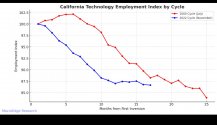manqiangrexue
Brigadier
But lower than it was in 2000-2011.Home ownership among young people in 2023 is higher than it was in 2018.
\
What's your point? High home ownership is awesome?
This "analysis" is apparently from a blogger who is angry at people for poking at his data, just like all the people with positive analysis of the US economy seem to be angry at young people saying that their lives are harder. In this comments of the article, people chew this guy up. He responds, "All the usual suspects of complainers! Is it adjusted for inflation? What about median? Why a log scale? How much is real estate? How much is stocks?"Young people’s are doing a very good job accumulating wealth, basically matching or exceeding prior generations while consuming substantially more.
Furthermore, when asked whether his data is inflation-adjusted, he says yes. They ask him where that is indicated. He says right on his chart. Then they point out that that tag was not seem anywhere from the data he cited as his sources and that he just threw it on there when making his charts, to which he admitted that he adjusted it himself... and they said he's being deceptive.
Anyway, here is data from someone who is not a blogger getting beat up on his own blog:

Additionally, we have this:
- The wealth gap between rich millennials and the rest of their age group is the largest of any generation, creating a new wave of class tension and resentment, according to a study.
- While the average millennial has less wealth at the age of 35 than previous generations, the top 10% of millennials have 20% more wealth than the top baby boomers at the same age.
LOL So does every modern country. In the US, their job is to explain everything away and find ways to make everything look ok for election.The United States has a very large statistical bureaucracy to measure everything under the sun to “self-reflect and improve their situation”, but okay.
Last edited:


